Illinois has
seven Social-Emotional Learning (SEL) Hubs that provide coaching and professional learning for social-emotional health and trauma-informed practices. The hubs are assisting school-community leadership teams to conduct a trauma assessment to pinpoint gaps and develop a trauma-responsive action plan to address those gaps within their schools.
Area 1 SEL Hub
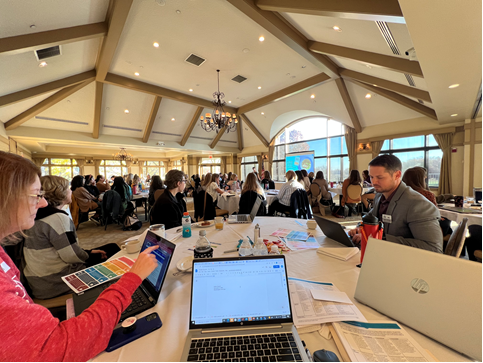
School leaders and educators are increasingly looking for more effective and positive approaches to discipline. Illinois’ seven
Social-Emotional Learning (SEL) Hubs are stepping in to help. The hubs are providing professional development to schools in their regions on wide-ranging topics related to social-emotional development. In January, the Area 1 SEL Hub in northeastern Illinois brought in speaker Nathan Maynard to talk about restorative and positive discipline practices that help to foster a sense of belonging and safety for students. Maynard provides tactics educators can use to keep “small situations small” and avoid ineffective fear- or shame-based approaches.
The hub covers over 1,700 schools, making it the largest of the seven SEL hubs. With such a large and diverse area to cover, the hub has dedicated SEL staff in nine regional offices working to meet the needs of schools in their area. Those needs can vary, and the hub is doing its best to be responsive to the current needs as schools recover from the many changes wrought by the pandemic.
Through coaching and professional development, the hub is trying to help move schools from addressing things on a day-to-day basis and putting out fires to developing a long-term, sustainable plan to create a supportive environment. “We try to approach districts by asking, ‘How can we help with your SEL goals?’ and, if they don’t have existing goals, ‘How can we help you create them?’” said SEL Hub Director Maureen McAbee.
Schools have a helping hand as they continue to navigate the social-emotional needs of students and staff in the wake of the pandemic through seven regional
SEL Hubs.
Learn more about the Area 1 Hub here.
Area 2 SEL Hub
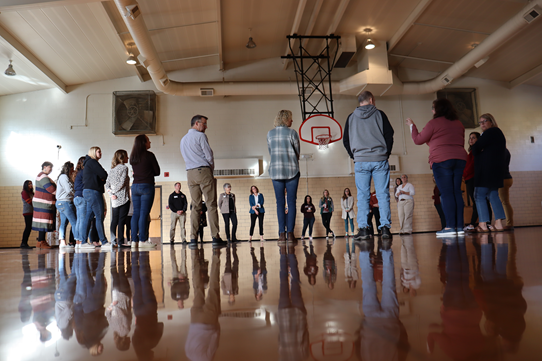
There has been a surge in interest in social-emotional learning (SEL) and what it means to be a trauma-informed school, sparking a demand for professional development in a broad range of related subjects. The Area 2 SEL Hub in northwestern Illinois has a collaborative team of 12 SEL specialists and coaches who are honing their expertise on topics that are in high demand — for example, they have staff specializing in restorative practices, mindfulness, teacher wellness, family partnerships, and trauma-informed schools. These issues are top of mind for many school leaders who are navigating the aftershocks of the pandemic.
Almost 90% of schools in the hub’s region have attended one of the hub’s SEL-related workshops since July 2022. The hub also coaches schools via the
REACH Statewide Initiative, which enables schools to work through eight distinct aspects of being a trauma-informed school. Schools are identifying areas where they need to focus more attention. The hub is going beyond the basics and providing specific strategies for implementation to help schools put ideas into practice. To go even deeper, the hub is planning an SEL summer symposium with a keynote speaker and breakout sessions aligned to the eight aspects of a trauma-informed school.
Schools have a helping hand as they continue to navigate the social-emotional needs of students and staff in the wake of the pandemic through seven regional
SEL Hubs.
Learn more about the Area 2 SEL Hub here.
Area 3 SEL Hub
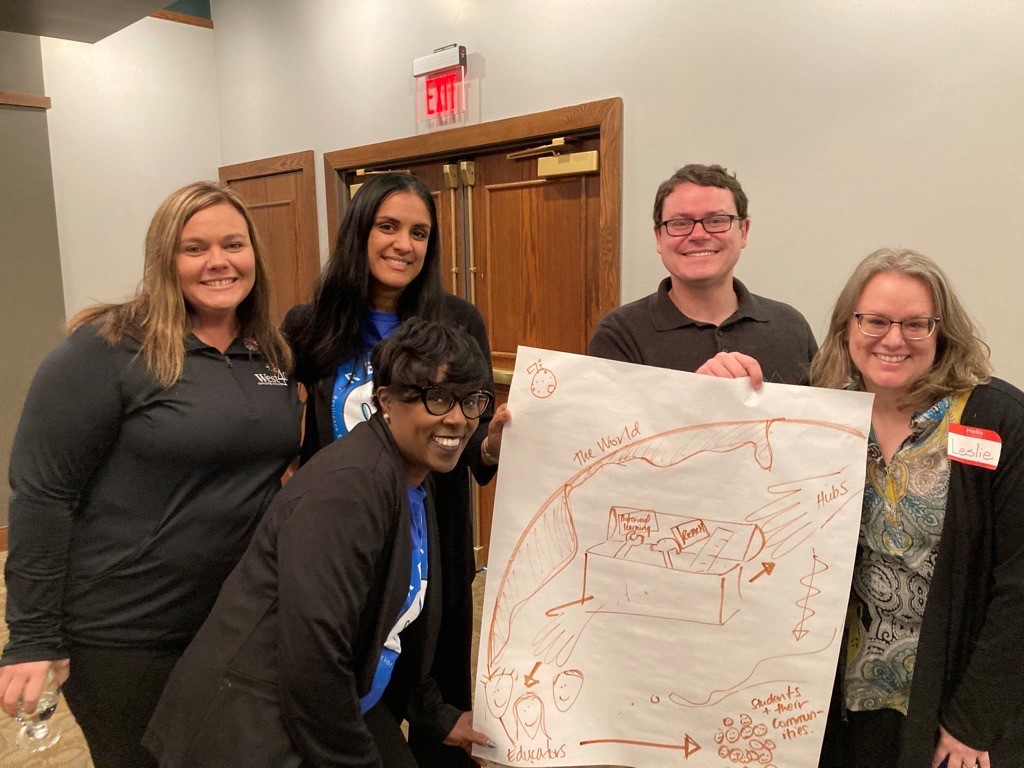
One of the unique things about the
Area 3 Social-Emotional Learning (SEL) Hub in western Illinois is that it is committed to being a “brain-based” hub. This means its SEL coaches are trained in a model that educates school staff about brain development and developmental trauma. They also learn how to apply that knowledge to their work with students, particularly students who have experienced trauma, in and outside the classroom. The Area 3 SEL Hub is finding that schools are interested in strategies that offer ways to effectively support students so that they are ready to learn. They have seen increased interest in training on restorative practices and Youth Mental Health First Aid. Hub Director Leslie Vigor shared that word is spreading about the hubs.
Not only are they seeing an uptick in attendees for their professional development programs, but the school teams working on trauma assessments and action plans are engaged and committed to doing the work.
"It is important for all of us to learn about the emotion cycles to recognize what is happening and how to think before you act. Teachers need to learn it first so they can support students," said Vigor. "Kids need to be taught how to process those emotions, especially those who have experienced trauma. Nobody has taught them how to create that space in their brain."
Schools have a helping hand as they continue to navigate the social-emotional needs of students and staff in the wake of the pandemic through seven regional
SEL Hubs.
Learn more about the Area 3 SEL Hub here.
Area 4 SEL Hub -
Carrie Hogue
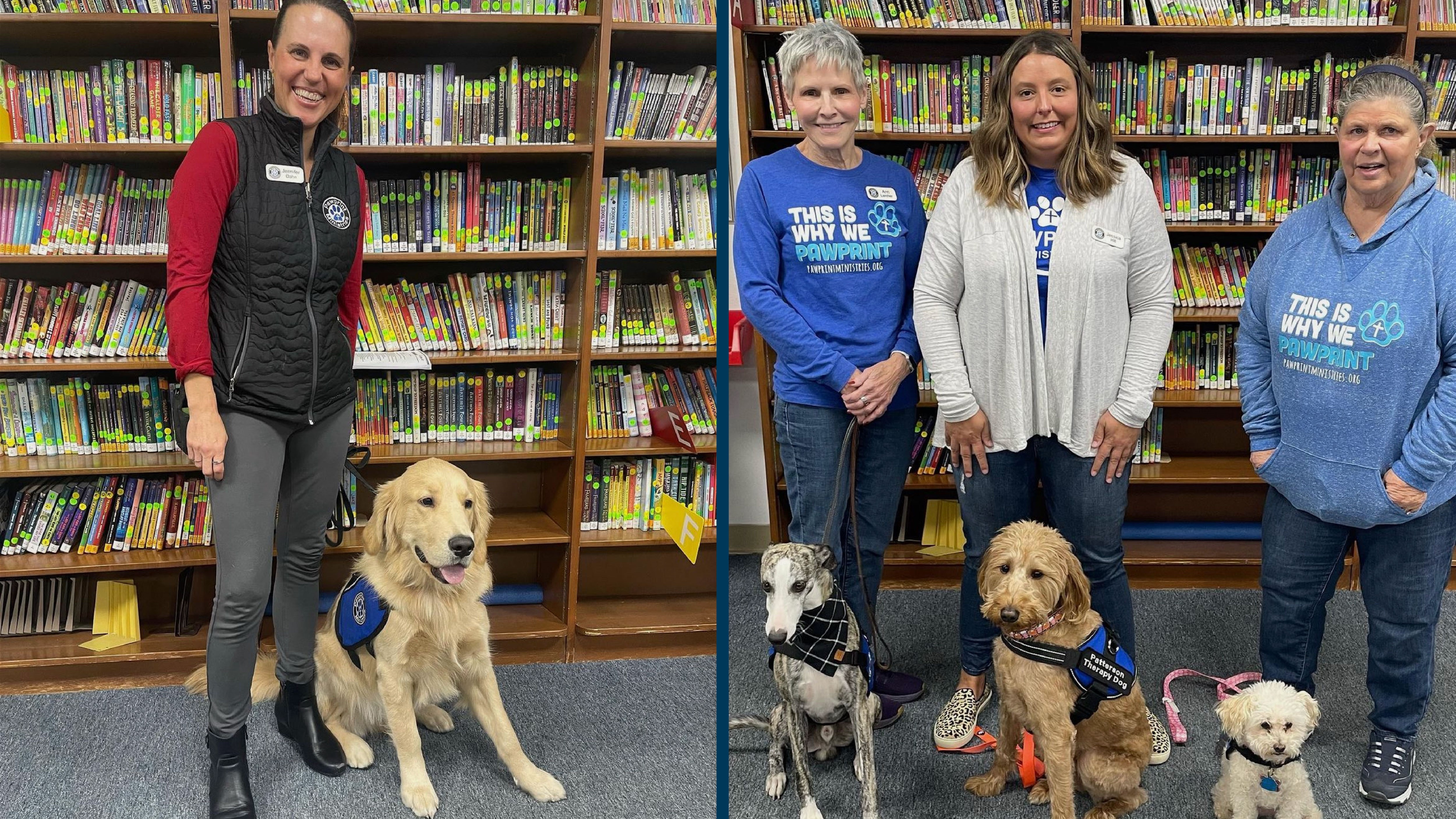
The Area 4 Social-Emotional Learning Hub in east central Illinois has a team that is trained and ready to help a school regain stability when a crisis occurs. This “flight team” includes social workers, counselors, and dogs — yes, dogs — who have been trained to assist students and staff members who are experiencing loss, grief, or trauma. The therapy dogs, provided by a community partner, offer comfort to schools, nursing homes, and other community settings during times of need.
In addition to the flight team, the hub offers customized professional development for school leaders and educators to better understand and respond to the social-emotional needs of students. For example, an SEL 101 course might cover concepts related to executive functioning, self-regulation, and the window of tolerance. When a student (or adult) can maintain emotional regulation, they can think clearly, function effectively, and be ready to learn.
Another way the hub helps schools become responsive to students' needs is by providing targeted training to school nurses. Trauma, anxiety, and stress can lead to physiological symptoms so a student may come down to see the school nurse and say they have a stomachache when they are experiencing anxiety or a stressful situation. As a result, the hub is hosting a two-day summer institute for school nurses to learn skills for crisis care and management so nurses can help respond in a holistic way.
Schools have a helping hand as they continue to navigate the social-emotional needs of students and staff in the wake of the pandemic through seven regional
SEL Hubs.
Area 5 SEL Hub
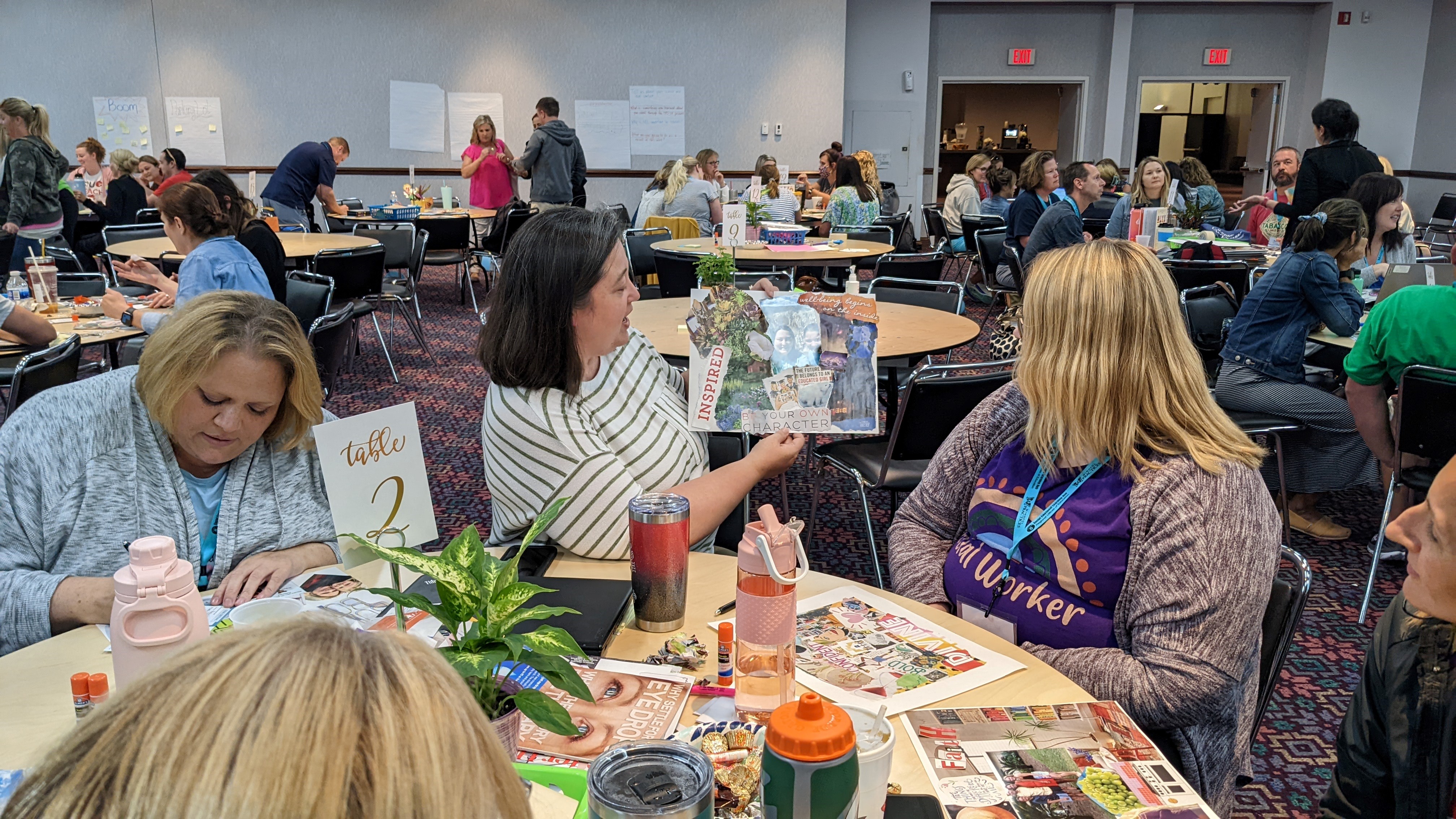
Many schools that have completed a trauma needs assessment are identifying the need to strengthen staff self-care. That’s where the Area 5 SEL Hub comes in. Matt Weld, the SEL coach for the region, offers Mindfulness Mondays, where educators are invited to learn and practice self-care strategies, including breathwork, meditation, mindfulness, intention, and yoga. The series provides educators with space and time to learn strategies and skills that can help them not only better manage stress but also translate into the classroom as strategies to support students. Mindfulness Mondays are just one of many ways that the hub is supporting educators.
The hub offers frequent professional learning opportunities — over 600 workshops attended by over 6,800 people in just the last six months — on topics covering physical self-care practice, psychological practice, time management, stress management, what is SEL and how to interweave it into lessons at school, and trauma-informed basics. The hub supports the
Teachers' Classroom podcast, which has dedicated its third season to conversations pertaining to mental health, equity, and trauma. Next month, the hub is bringing in some big-name presenters for a conference dubbed
PEP Con, or the Positivity, Energy, Purpose Conference. PEP Con is a good example of the way that the hub is cultivating a supportive and inviting climate and culture.
Schools have a helping hand as they continue to navigate the social-emotional needs of students and staff in the wake of the pandemic through seven regional
SEL Hubs.
Learn more about the Area 5 SEL Hub here.
Area 6 SEL Hub
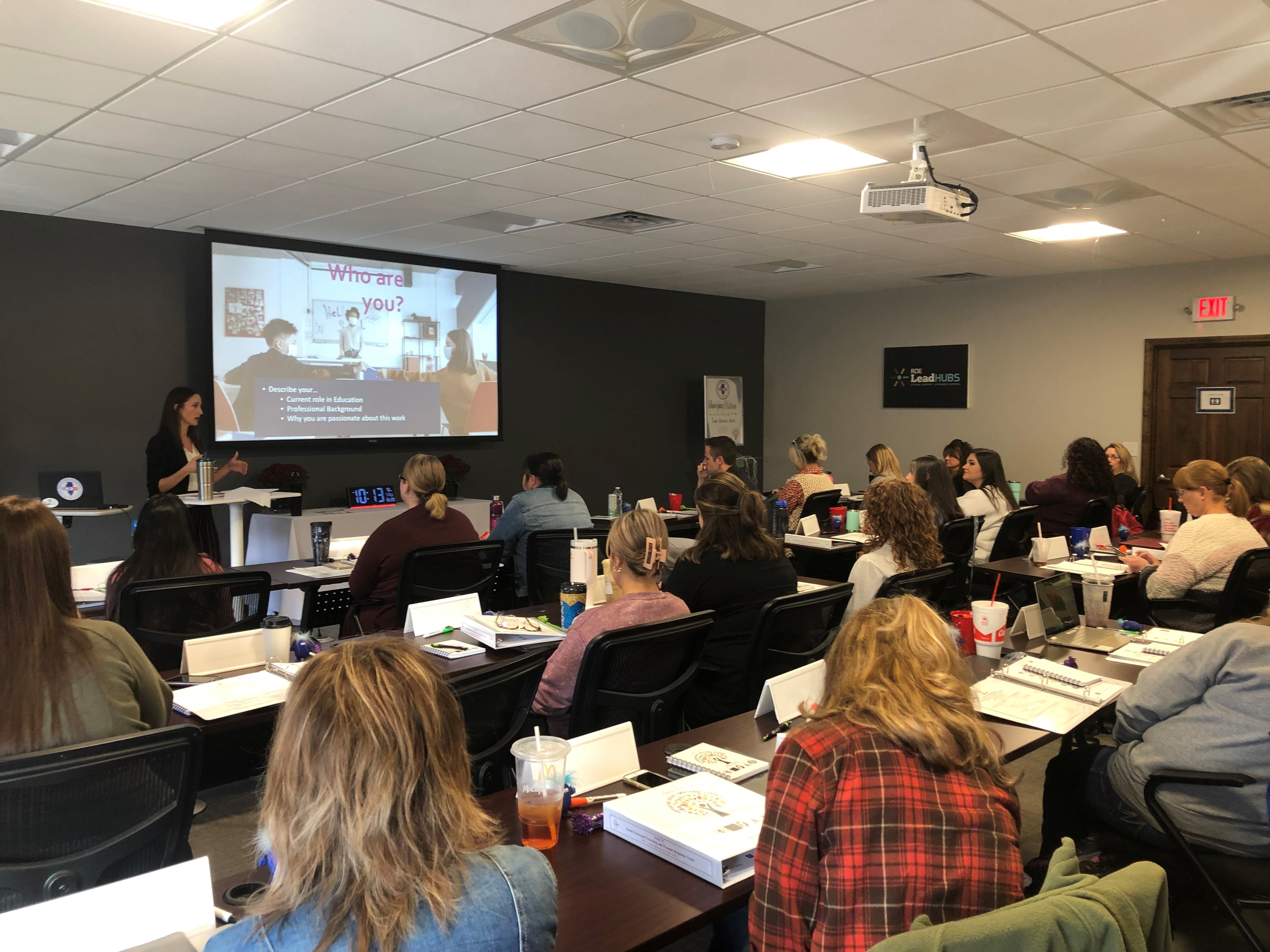
The Area 6 Social-Emotional Learning Hub brought school leaders together to learn how to support students and staff, but they also ended up supporting each other. The hub leaders attribute this, in part, to the power of being together in person.
The Area 6 SEL culture and climate coaches support leaders as they complete a
trauma-responsive needs assessment to better understand how they can create a school environment that supports students and staff. Starting last school year, the first cohort of schools came together once a month, in-person, to walk through the assessment and develop an action plan. “By meeting in person, we have provided an opportunity for our SEL Leaders to come together in a safe space to share and learn from each other,” said Hub Director Dr. Christine Wiggs. This process of learning, sharing, and reflecting enabled SEL Leaders to create a collaborative community of support. The hub now has a second cohort that is going through the same process, and it had no problem filling all the available spots. SEL leaders from both cohorts return to their schools to share SEL and trauma-responsive practices and resources in order to build capacity in their schools. The conversations the SEL coaches are having with school leaders let them know, as a hub, they are on the right track!
Schools have a helping hand as they continue to navigate the social-emotional needs of students and staff in the wake of the pandemic through seven regional
SEL Hubs.
Learn more about the Area 6 SEL Hub here.
CPS SEL Hub

The Chicago Public Schools (CPS) Social-Emotional Learning Hub is integrated into the CPS Office of Social-Emotional Learning, enabling the office to expand the breadth of support offered to the more than 600 schools in the city of Chicago.
The district is focused on a healing-centered framework that emphasizes a whole child approach. Traumatic experiences can disrupt a student’s ability to learn. The framework is designed to develop protective measures that can help mitigate the negative effects of trauma. Protective measures like healthy adult-child relationships, safe and supportive school environments, and targeted resources are all part of a system to invest in the wellness of students.
"We are doing this by making sure every school has tiered systems of support that integrate SEL practices throughout the school community. For example, all schools have access to mindfulness activities and techniques that they can use in the classroom, in small groups, and targeted individual sessions by teachers and counselors," said SEL Hub Director Adam King.
Schools have a helping hand as they continue to navigate the social-emotional needs of students and staff in the wake of the pandemic through seven regional SEL Hubs. To reach out to the CPS SEL Hub, email OSEL@cps.edu.
